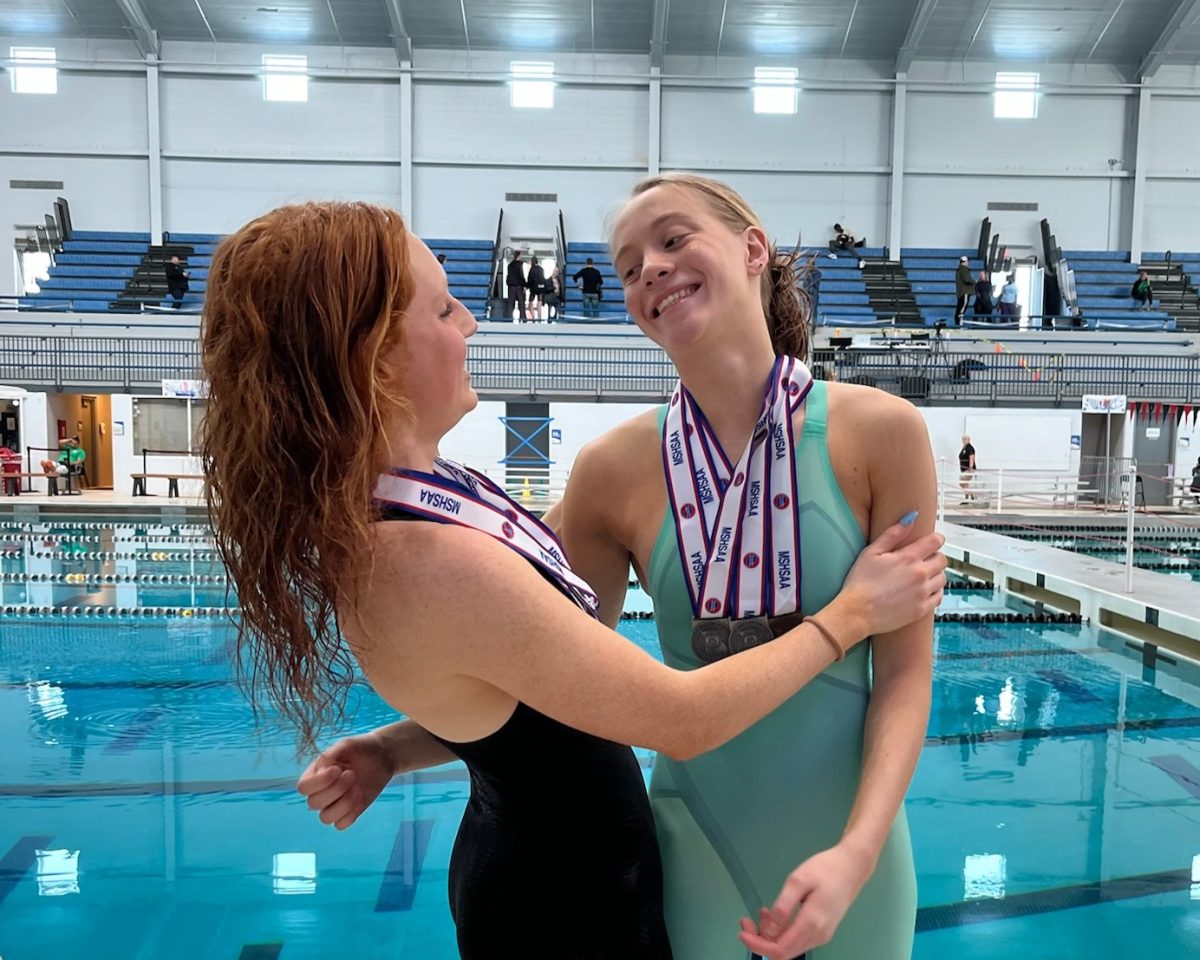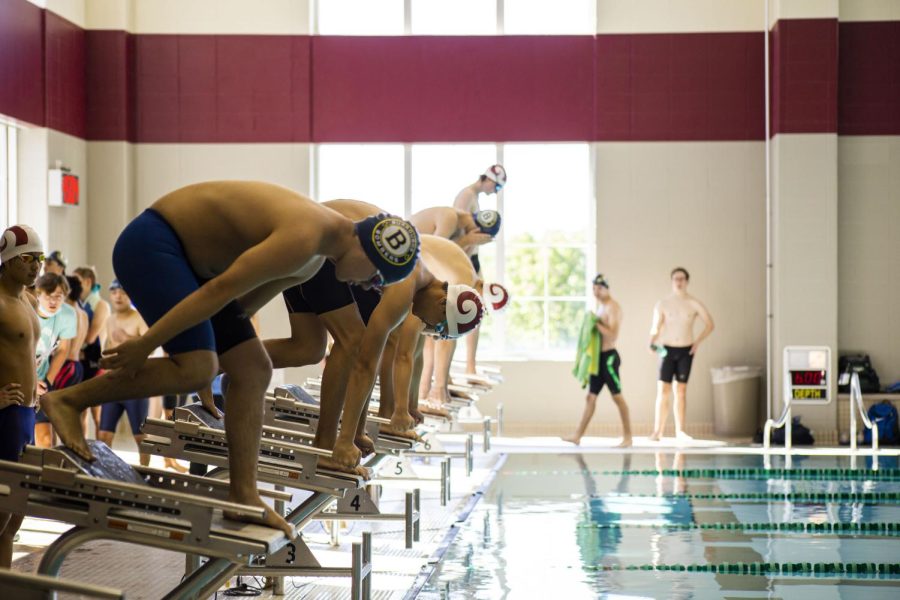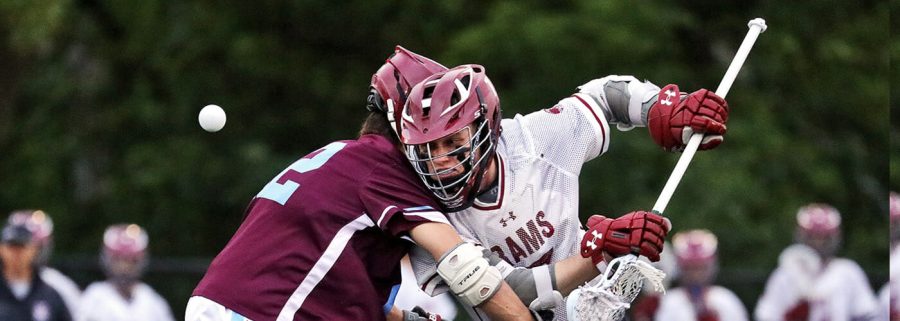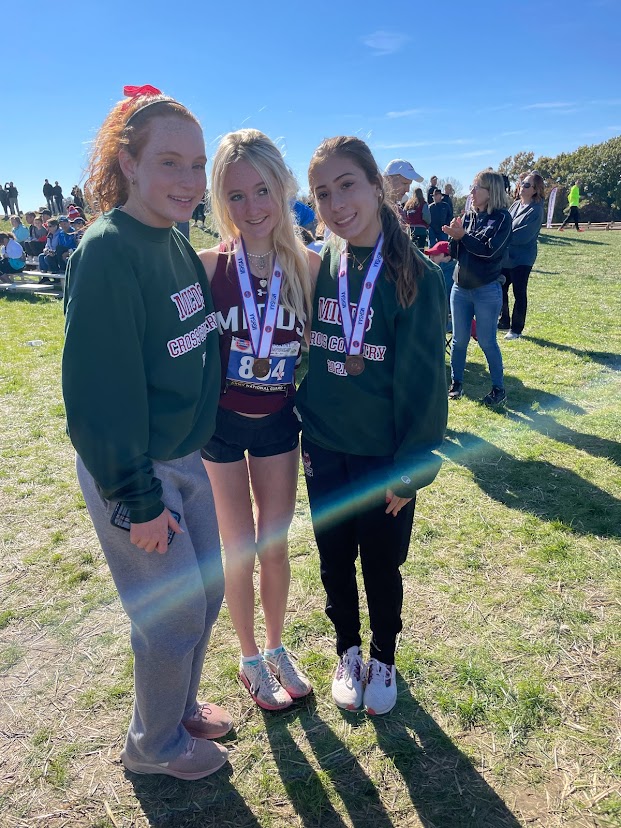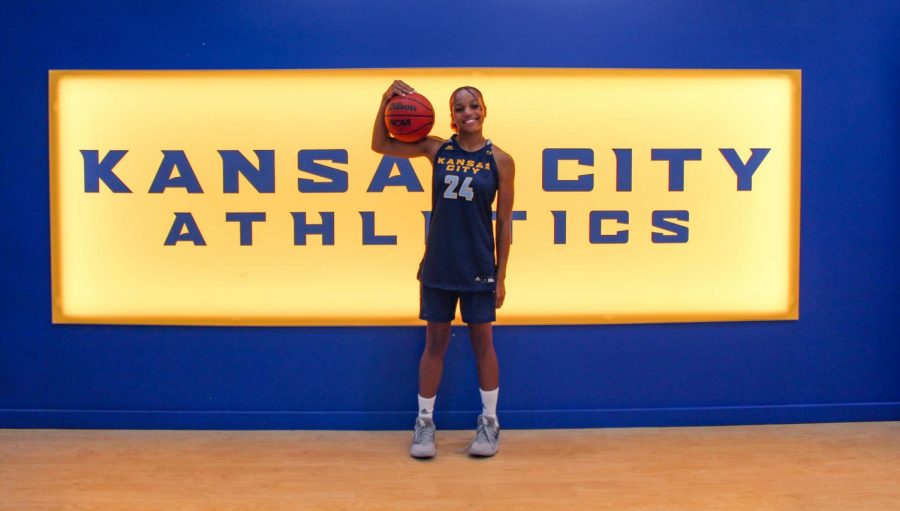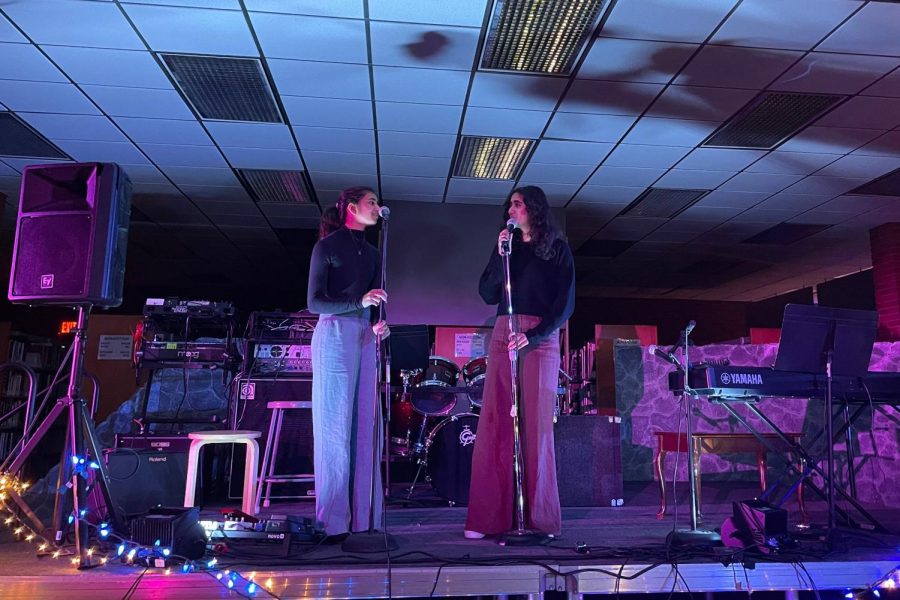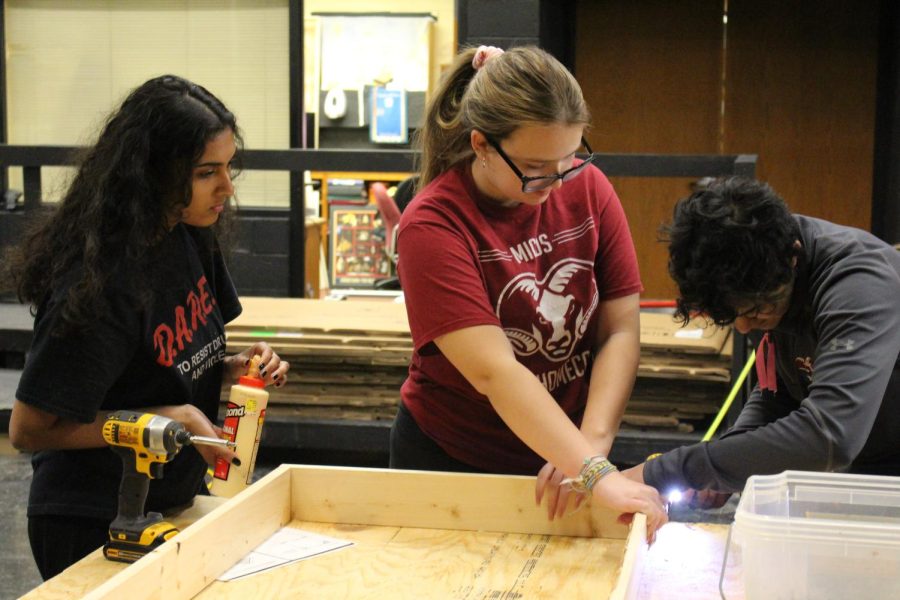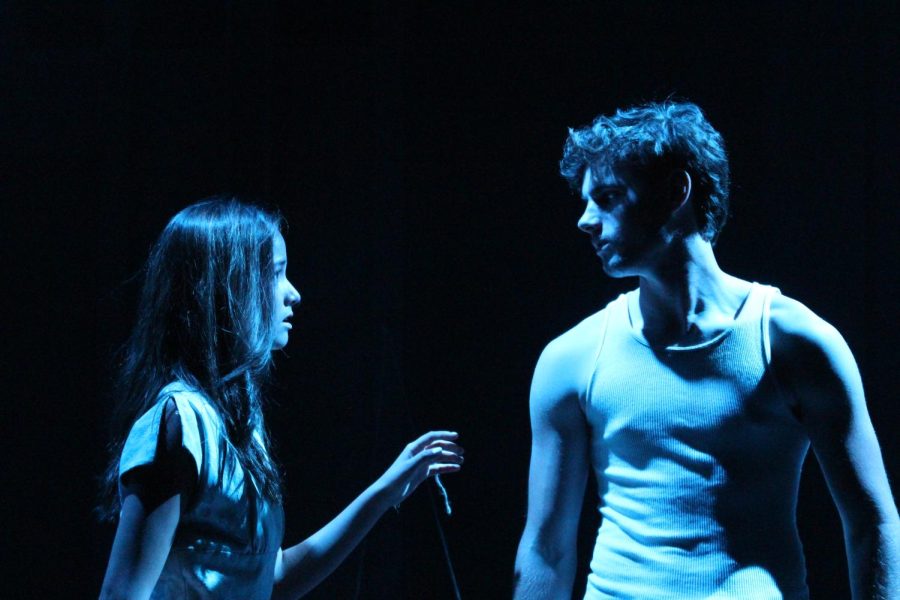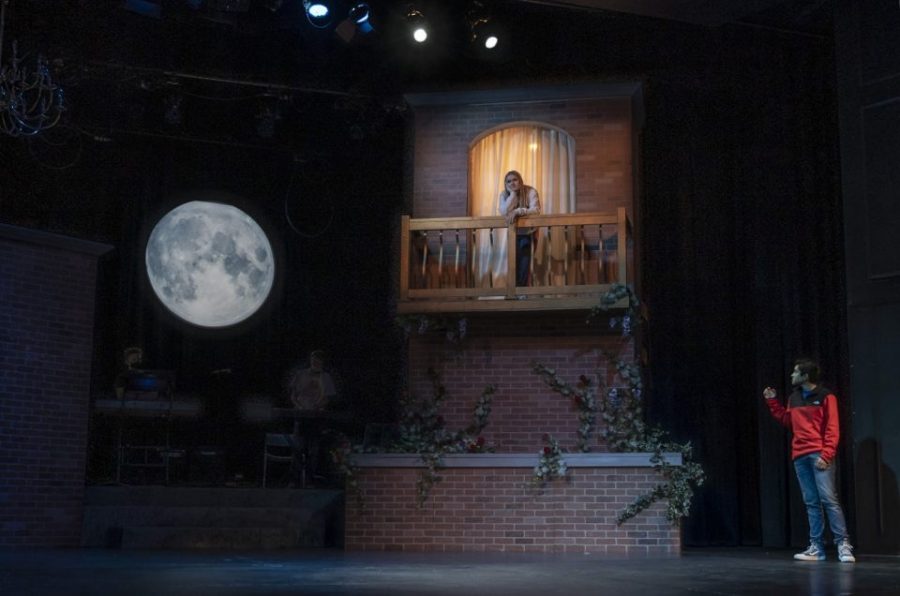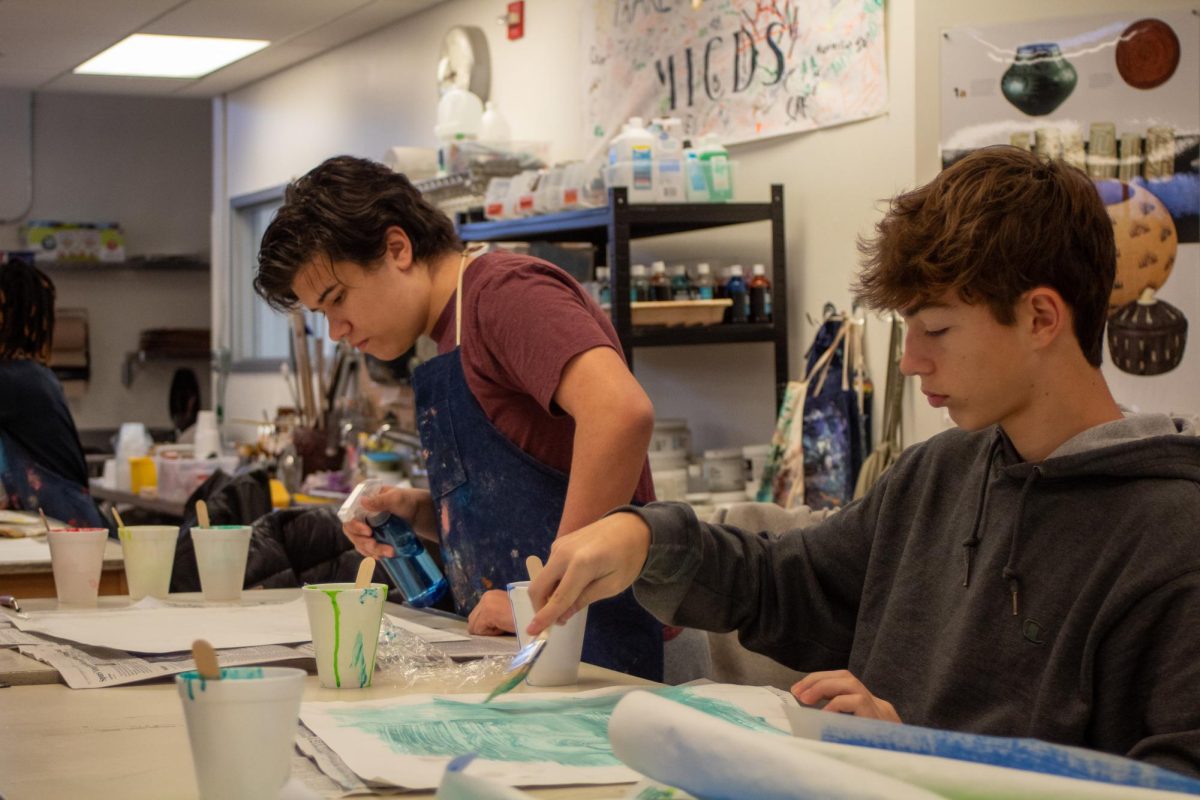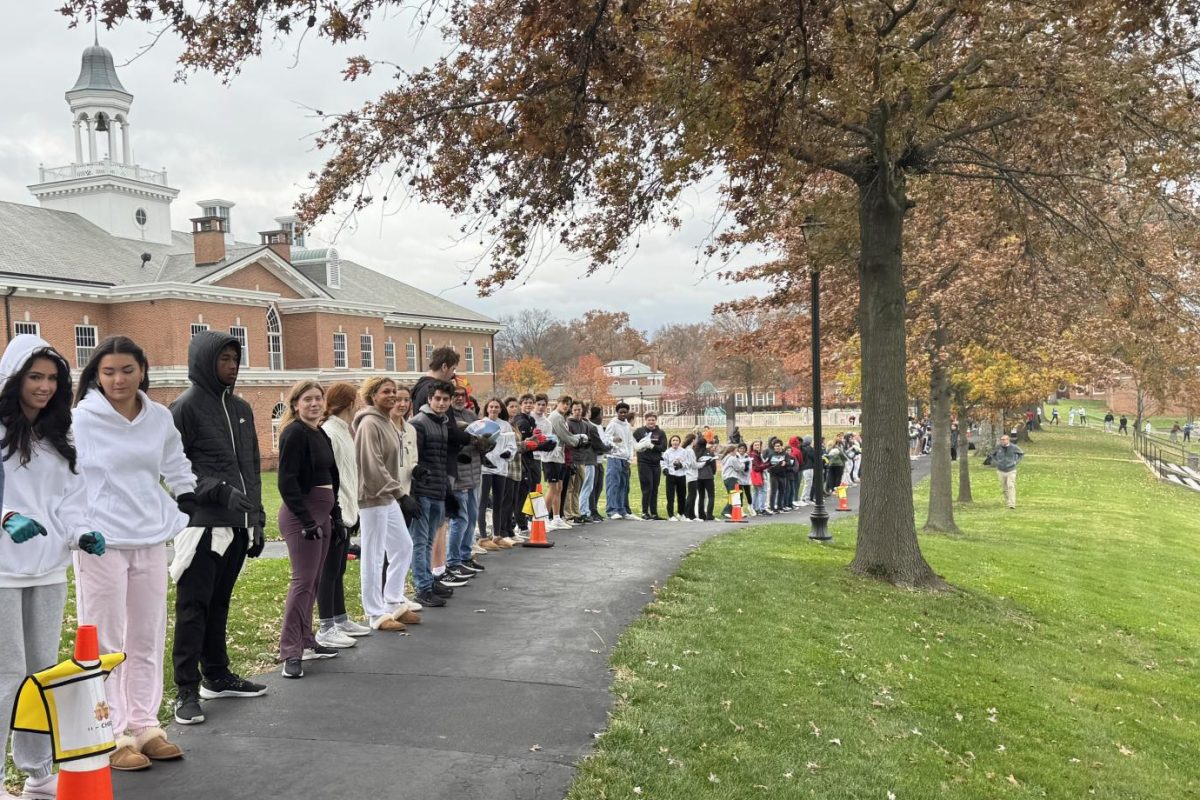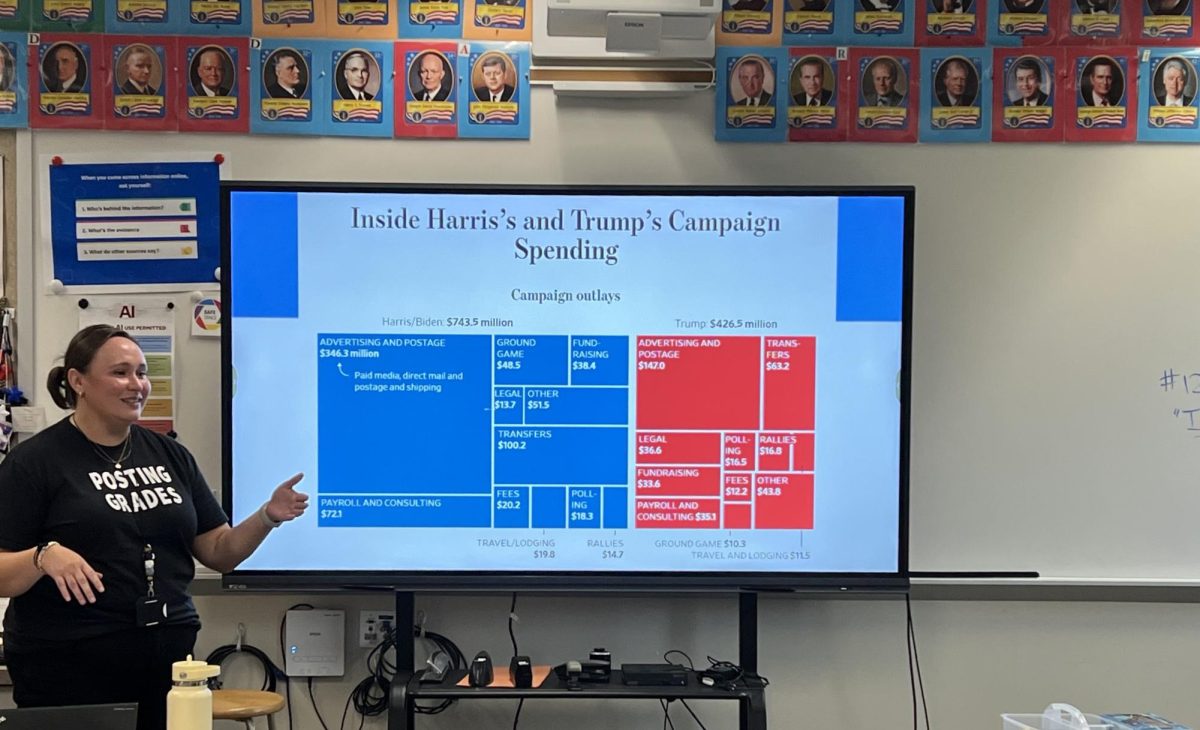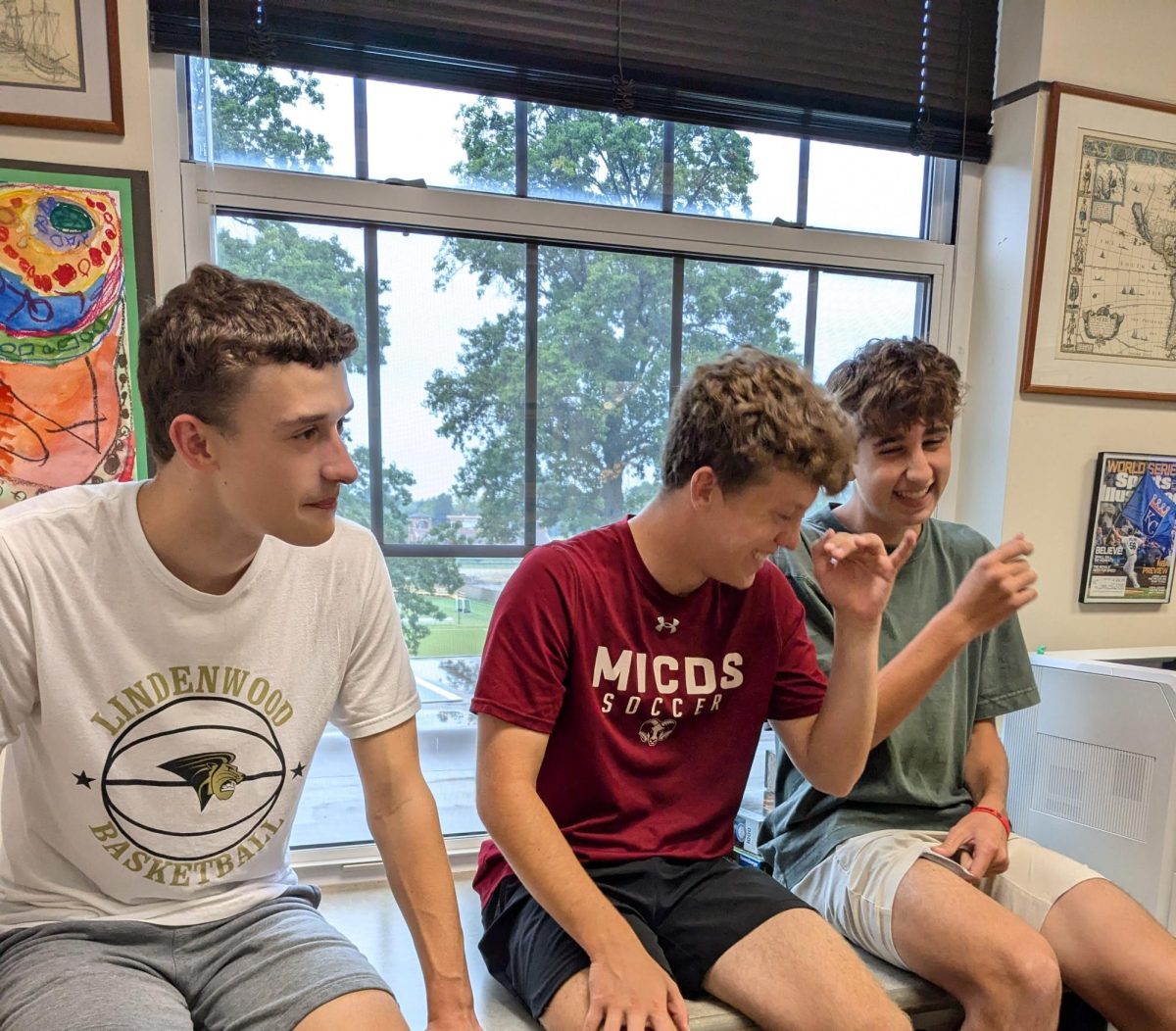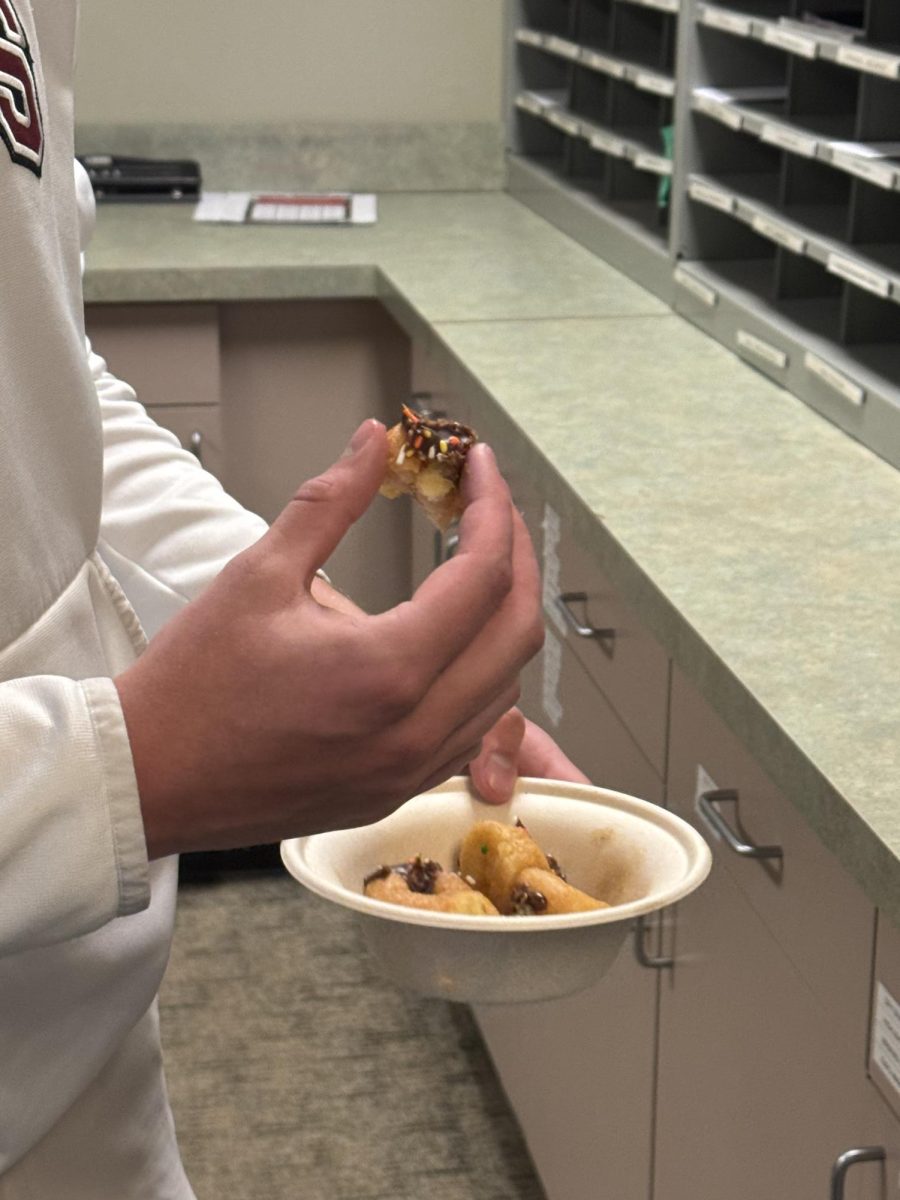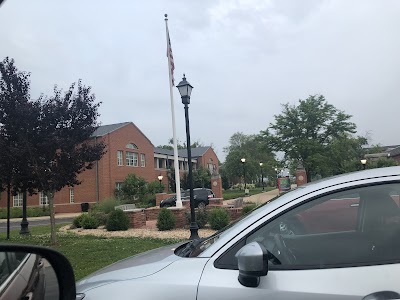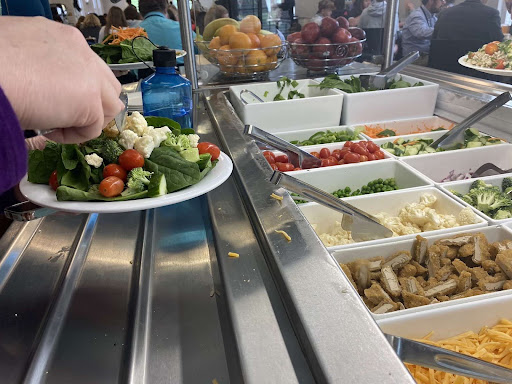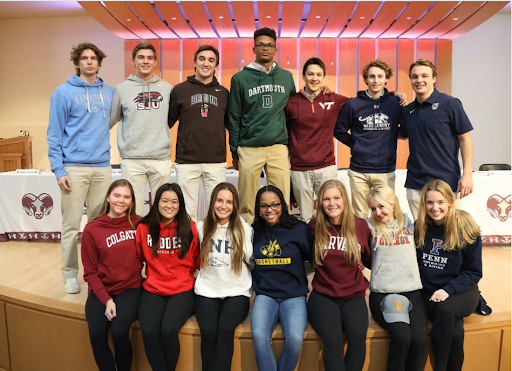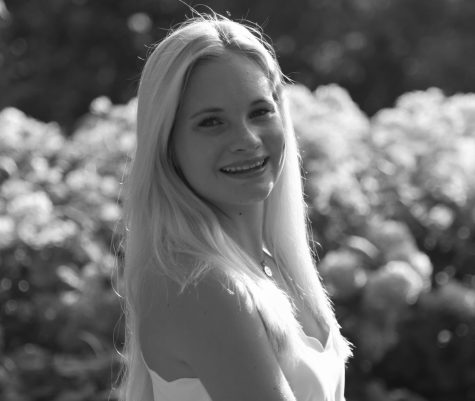Kleinlehrer ’22 Holocaust Education Bill 2000 Passes in the MO House of Representatives
April 18, 2022
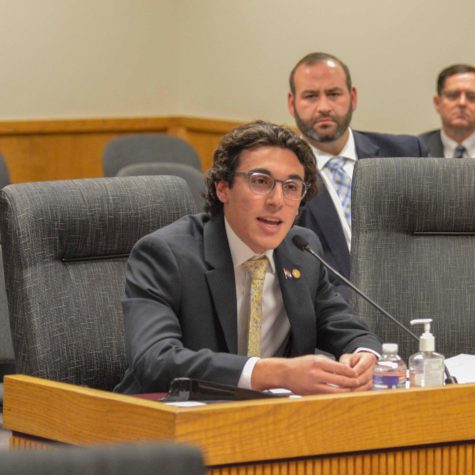
Senior Noah Kleinlehrer is no newcomer to civic engagement and activism. Head of the Community Service Committee and the Campus Democrats Club, he is passionate about making positive change in his community. In late 2019, he also became interested in making change on the state level. Recognizing the rising reports of antisemitism and hate crimes around the world, Noah began to formulate a plan for change.
Noah attributed this problem to a lack of knowledge about the Holocaust, especially among young people. In his research, he discovered that a growing number of studies have found higher rates of Holocaust denial and misunderstanding of just how destructive and deadly the Holocaust was. Even in St. Louis, there were instances of blatant antisemitism, including the 2017 vandalism of Chesed Shel Emeth Cemetery, a Jewish Cemetery in University City.
Inspired by his own family’s story originating in Lodz, Poland which he shared with MICDS seventh graders in March of 2021, Noah devised a plan to take action against undereducation and misrepresentation of the Holocaust in Missouri schools by talking to other students, teachers, and eventually, policymakers.
One figure who had a significant role in Noah’s legislative journey was MICDS History Department Head, Ms. Federman.
Noah wanted to attack misinformation and prejudice at the root of the problem,–education–and knew his own education shaped by both his family’s history as well as the learning experiences he’s had as an MICDS student have equipped him to make a difference when it comes to Holocaust education more generally in Missouri. The role of early education in forming the ideas of young people is crucial in molding the thinking of future generations. By changing how schools approach Holocaust education, there is potential for creating a stronger foundation upon which school-aged children can base their thinking, which has the potential to make them more aware adults.
Post-quarantine, an increasing number of states began passing bills that mandated Holocaust education in public schools. Noah identifies the passing of Colorado’s House Bill 20-1336, which requires Holocaust education into the regular curriculum, as a catalyst to pursuing a similar bill in his own home state. He also recognized that he would most likely be attending college out of state, increasing his desire to make an impact in Missouri before leaving. Colorado’s bill 1336 requiring Holocaust education in public schools was introduced on March 2, 2020 and then passed unanimously before being signed into law July 8, 2020.
Other states soon followed suit by passing similar legislation, and Noah noted that attention wasn’t limited to a specific region or political leaning. After committing to attend George Washington University in Washington, D.C, Noah explained how he thought, “I’m not going to be in St. Louis for the rest of my life. I’m going to go off to college, and I knew there had to be at least one more thing I had to do to make sure that everything I’ve worked for isn’t going to go away once I leave”
As he began pursuing opportunities to speak about the importance of Holocaust education, he was invited to lecture at Lindenwood University, and various St. Louis high schools, including Christian Brothers College (CBC), Visitation Academy, and Chaminade Preparatory.
Eventually, he approached Ms. Federman to talk about his desire to make legislative change.
After the 2020 History of St. Louis classes’ politics panel, Noah and Ms. Federman came up with the idea of reaching out to St. Louis County representatives in the Missouri House of Representatives, Tracey Mcreery (D), Ian Mackey (D), Shamed Dogan (R), and Phil Christofanelli (R) through email. Unfortunately, Noah got no responses from the representatives or their legislative assistants.
“It wasn’t them saying we don’t support this, or we don’t take this seriously, but I saw this as a sign that this wasn’t going to be a walk in the park. It wasn’t going to be as easy as Schoolhouse Rock’s “How a Bill Becomes a Law” video,” he said jokingly.
Early on in the process he also realized that “even though this isn’t something political, there’s going to be backlash.”
So, he decided to focus on universal education and moral values: “I wanted this to come from the roots of education,” he explained.
He also worked with Congregation B’nai Amoona, a synagogue in Creve Coeur, where he met Rabbi Jeffrey Abraham. Rabbi Abraham had been involved in the passing of a Holocaust education bill in Texas similar to the one Noah envisioned being implemented in Missouri. This relationship proved helpful because not only did Rabbi Abraham have experience working on a Holocaust education bill, but he had experience passing a Holocaust education bill in a conservative-leaning state, where such bills tend to meet more roadblocks.
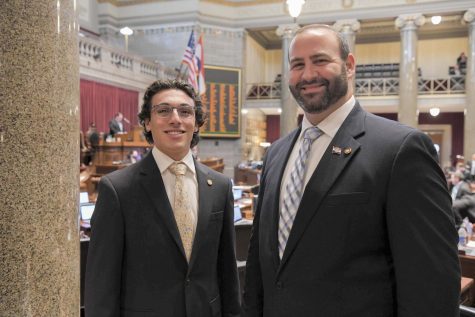
Noah contacted St. Charles Representative Adam Schwardon (R), who was enthusiastic to help support the bill and push it forward in the Missouri House of Representatives. Over the summer of 2021, Noah and Representative Schwardon met to discuss the details of the bill, including wording, fiscal matters, and implementation of the bill.
When the bill was drafted, Noah felt a sense of “Even though we’re just one small link in the chain of ending bigotry, it’s having such an impact,” spurring conversations and change both within Missouri and the country as a whole. As more and more states have been passing similar bills, a national trend has been created, encouraging other states to also pass Holocaust education legislation.
From there, Noah and Representative Schwardon created a connection with Missouri State Senator Brian Williams (D). This across-the-aisle cooperation highlighted an important aspect of Noah’s bill: not only is it important for academic enlightenment, but Noah explains that it also teaches universal lessons of empathy.
Circling back to the 2021 History of St. Louis political panel, Noah reflected on the speakers’ focus on the importance of bipartisan collaboration, especially in a current political climate that is so polarized. Overall, he reflected on how “we needed this to be a non-partisan issue, because that’s truly what it is.”
Ultimately, Noah and Representative Schwardon decided to mandate a week dedicated to Holocaust education. Having a timeline and being prepared to provide resources to schools helps to ensure easy implementation. Noah explained that Missouri has access to a great deal of first hand accounts of the Holocaust; St. Louis is home to a strong Jewish community, and Noah explained that locally there is a significant amount of physical evidence of the Holocaust, including journals, artifacts, and family stories.
“Missouri has been prepared for this for years,” Noah emphasized. “We have so many first-hand accounts and stories available within our community”
“It’s not just about the Holocaust,” Noah elaborated. “There are many topics that should get more of attention in schooling – slavery for example. The Holocaust is such a unique and specific issue, but it teaches us about so many things. I know if I didn’t have my family background, I would have such a different outlook on life. I think Holocaust education can provide that outlook as well as how to treat others with kindness and empathy.”
In late Fall of 2021, Representative Schwardon and Senator Williams toured the new St. Louis Kaplan Feldman Holocaust Museum which is set to open this upcoming spring. Meanwhile, the bill gained more public attention, and Noah began speaking to students at MICDS and other nearby high schools to collect written testimonies about the importance of Holocaust education.
“I was so impressed,” he said. “I received overwhelming support from students.”
On Thursday, January 20th, Noah received the news that the proposed bill was ready to go to committee the following Tuesday.
“If you know me as a person, you know I don’t panic. I like to think I don’t fold under pressure. But this was the time I thought to myself, this is really happening. We had five days notice that our hearing would take place on the 25th,” he said.
Noah recalled how he refocused and talked to history teachers Ms. Federman, Mr. Asher, and Mrs. Roberts to get final pieces of input and support. He spent the weekend leading up to the hearing writing his testimony.
Simultaneously, he had a lot of work to complete for school as a student–papers, assignments and tests–that he had to balance with the very adult task of going to the State Capitol to propose a new bill.
“All of this research I had done over two years… had to fit into five minutes of speech. I’ll tell you this: my room was a mess. I had books taken off shelves, papers thrown around my bed. My desk was just flooded. I also kind of took a step back and thought: wow, this is really exciting.”
He started with fifteen notecards of condensed information he wanted to present at the hearing. Then fifteen became ten, and ten became seven. Despite bringing his notecards along to remember specific points he wanted to discuss, he recalled how he wrote relatively little on each notecard, wanting to focus on direct eye contact and engaging the committee members.
The night before the hearing, Noah went over his testimony one last time with Ms. Federman, before deciding he was ready.
“Monday night I actually slept pretty well, which was good because I thought I wasn’t going to,” Noah said. “As I was walking out of my room the morning of, I saw all of the work, all of the materials laid out–I could take it all in and just be this is everything I’ve done, come down to this moment. I remember driving and thinking, this could be the biggest day of my life so far. I was nervous, but I was really more excited. I had this opportunity… so many opportunities over the past two years to do what I love to do and spread the message I want to spread,” he said.
It was a two hour drive to the State Capitol in Jefferson. Even though the hearing wasn’t scheduled to take place until 4:00 pm, Noah arrived at 10:00 am in order to prepare and meet other representatives.
Before he walked into the Capitol building, Noah listened to an audio narration of the Holocaust from a survivor. “It reminds me why I’m here,” he explains. “The reason I’m doing this is because there is an important message to be spread.” The audio story helped to refocus him on his mission.
Noah served as Representative Schwardon’s Page for the Day. When he walked in, he got to use the entrance for political officials instead of the main security entrance that other visitors from the public use. Upon entering the building, he was in awe of the murals on the walls and overall beauty of the architecture.
He met Representative Shwardon at his office, along with some of his legislative representatives, who congratulated him on his progress with the bill.
At the 10:00 bell, it was time for a House of Representatives meeting. Upon walking into the meeting, Representative Schwardon announced to the room: “he’s with me.”
“That was just so cool,” Noah said. “It was so nonchalant, but it just made me feel like ‘wow, that was insane.’”
Being in the House meeting was a significant moment for Noah, who plans to study political science in college. “The beauty of the room, being on the floor and getting the first-hand experience” was something he valued.
Before the meeting was in session, Noah got to meet other representatives, some of whom were already aware of and in support of his bill
After Speaker of the House Rob Vescovo (R) used the gavel to call the meeting in session, the representatives took attendance.
During the meeting, Noah was seated with other special guests for the day. The list of attendees for the day included a group of Highway Patrolmen being honored for their work and Miss Missouri of the Miss America pageant.
“People want to meet the special guests,” Noah continued. “The pecking order was they wanted to meet the highway patrolmen, then they wanted to meet Miss Missouri, then they wanted to meet me.”
The meeting also consisted of a debate between representatives, which Noah also enjoyed seeing, as he hopes to be in similar settings in the future.
Following the meeting, Representative Schwardon introduced Noah to other politicians, including Tracy McCreery and former representative Stacy Newman. Noah was struck by the enthusiasm with which the politicians regarded hearing more about Bill 2000. One man upon shaking hands with Noah asked, “‘what district do you represent?’”
“That was pretty cool,” Noah added.
That wasn’t the only time throughout the day that he was mistaken for being older than he is, explaining in our interview that many representatives had assumed he was in college. When I replied that there aren’t many other high schoolers spearheading an effort to pass legislation at the state-level, he said “I think that’s what my main message was: one of the greatest dangers to our society is that a lot of young people don’t know that they have a say and can make change. In the United States, especially, young people have a lot of power. We do have an opportunity to change the world for the better.”
Throughout the day, Noah visited different offices and talked to a variety of legislators. One thing he discovered was that “politicians are really nice to each other… They are extremely respectful. They act in a really humble and courteous way.”
He even related the dynamic between politicians to the dynamic among Upper School students at MICDS; even with dividing factors and party lines, they still collaborated effectively.
This dynamic was helpful for Noah’s bill because he sees it to be a bipartisan issue relevant to all Missourians, and all Americans as a whole.
Ms. Federman reflected on how “MO HB 2000, which Noah has been advocating for and shepherding through this process, would be an important step for Missouri and is, quite frankly, a perfect example of the MICDS Mission Statement at work: by ensuring that students learn about the horrors of the Holocaust, he is helping build empathy and compassion for all people of all religions.”
Leading up to the 4:00 p.m. hearing on Bill 2000, Noah was greeted by House members who gave him suggestions and ideas about what sort of questions they were required to ask during the hearing.
That made him realize “I’m not on the stand at a trial. They’re not trying to undermine our efforts. They want to help us. They have to ask these questions as far as maintenance goes in order to help the vote go smoothly.”
The hearing was live-streamed, a fact that brought a sense of support to Noah as he remembered his parents, friends, and faculty members watching at home. He reminded himself that “everyone here supports me. Everyone at home supports me.”
The first half of the hearing was focused on other issues being heard by the Legislative Committee. When it was time for Bill 2000 to be introduced, Representative Schwardon began by inviting Noah to speak first. After the introduction and some questioning from Committee members, the Chairman of the Committee, Robert Patterson, invited Noah to give his testimony.
“‘I am very much looking forward to what you have to say,” the Chairman said. “Welcome to the Capitol.’”
Noah sat down, adjusted his microphone, and began. “Thank you, Mr. Chairman, and members of the Committee.”
Recalling how he was feeling in that moment, Noah described how “at that moment there were no more nerves. There was no more excitement. I was just there to speak about what I have been working on over the past two years, my passion in life right now. I felt like I was a vessel for so many people… every single person who had ever felt prejudice against them, any person who ever felt that they weren’t equal because of who they were.”
Having practiced so frequently, Noah didn’t need to consult his notecards often during his testimony.
“I wanted to speak to them directly,” he explained.
After finishing his testimony, Noah opened up the floor for questions.
The Chairman asked, “Noah, are your parents here today?”
“Yeah, they are,” Noah said.
The Chairman responded, “they must be proud.”
When all the testimonies had been heard, the Chairman came up to Noah to shake his hand, and gave him a medallion imprinted with the Missouri seal.
When the Chairman had to leave to go to another vote, he walked to Noah’s father, Mr. Kleinlehrer shook his hand, and walked out of the room.
“It was really cool to see that,” Noah said.
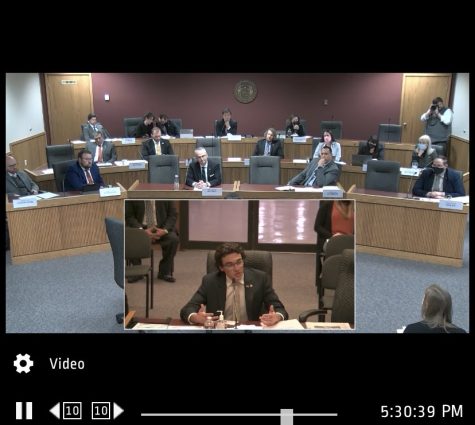
When Noah got back to St. Louis, he received many congratulations from his peers and teachers. Going forward, he hopes to inspire other people, especially other high schoolers to make change in their communities.
On Wednesday, March 23rd, Noah got notice that Bill 2000 would be heard by the Senate in nineteen hours. At the time he got this news, he was still in Utah with friends on a senior spring break trip. Luckily, his flight was scheduled for Wednesday night anyway, so he didn’t have to arrange alternative travel arrangements. However, he worried about the quick turnaround and the time restraint, this time even more extreme than the five days notice given before the House hearing. To prepare, Noah stayed up late and wrote out more notecards with important points. Early the next day, he left for Jefferson City for the second time. The stakes for the Senate hearing were higher than in the House because the Bill 2000 team anticipated more resistance from Senators. He worried about “this being it” for the bill. After all of the work he put in, he didn’t want the bill to be stopped in its tracks at the Senate.
Despite some apprehension, Noah’s testimony and the hearing at the Senate went extremely well, with several politicians remembering him from his first visit to the capitol, and others coming up to shake his hand and introduce themselves.
On Tuesday, April 5th, Bill 2000 was voted upon in the Missouri House of Representatives by the Progress and Development Committee, and was approved with a final vote of 140-1.
Bill 2000 is currently in committee in the Senate. Noah will continue to keep the MICDS community updated as further events develop.
Noah is also looking forward to speaking at St. Louis’ National Holocaust Remembrance Day event for Yom HaShoah from sundown on April 27th to sundown on April 28th.
________________________________________________________________
To support Bill 2000, contact your local representatives by following these instructions:
- Click on link: https://house.mo.gov/MemberRosterMobile.aspx?year=2022&code=R%20&filter=&pics=&cluster=&focusedID=
- Select “all members”
- Click on the name of your representative to find their email address.
- Send them an email encouraging them to vote yes on Bill 2000!
States With Holocaust Education Legislation
| State | Year Enacted |
| California | 1985 |
| Illinois | 1989 |
| New Jersey | 1991 |
| Florida | 1994 |
| New York | 1994 |
| Tennessee | 1996 |
| Pennsylvania | 2014 |
| Michigan | 2016 |
| Connecticut | 2018 |
| Rhode Island | 2018 |
| Kentucky | 2018 |
| Texas | 2018 |
| Georgia | 2018 |
| Oregon | 2019 |
| Colorado | 2020 |
| Delaware | 2020 |
| New Hampshire | 2020 |
| Virginia | 2020 |
| Arkansas | 2021 |
| Arizona | 2021 |
| Maine | 2021 |
| North Carolina | 2021 |
| Wisconsin | 2021 |
| Florida | 2022 |
| Indiana | 2022 |

